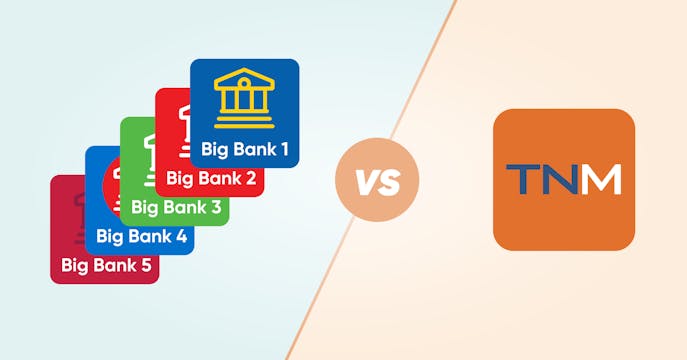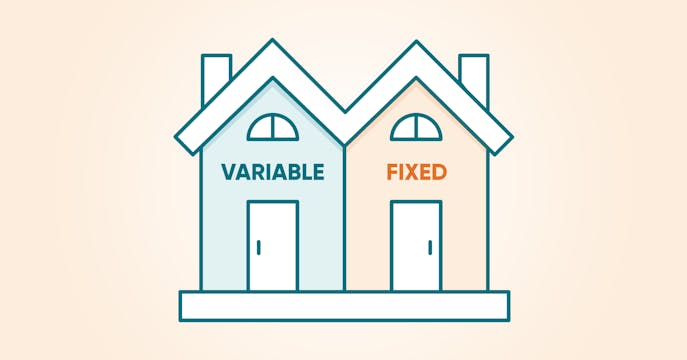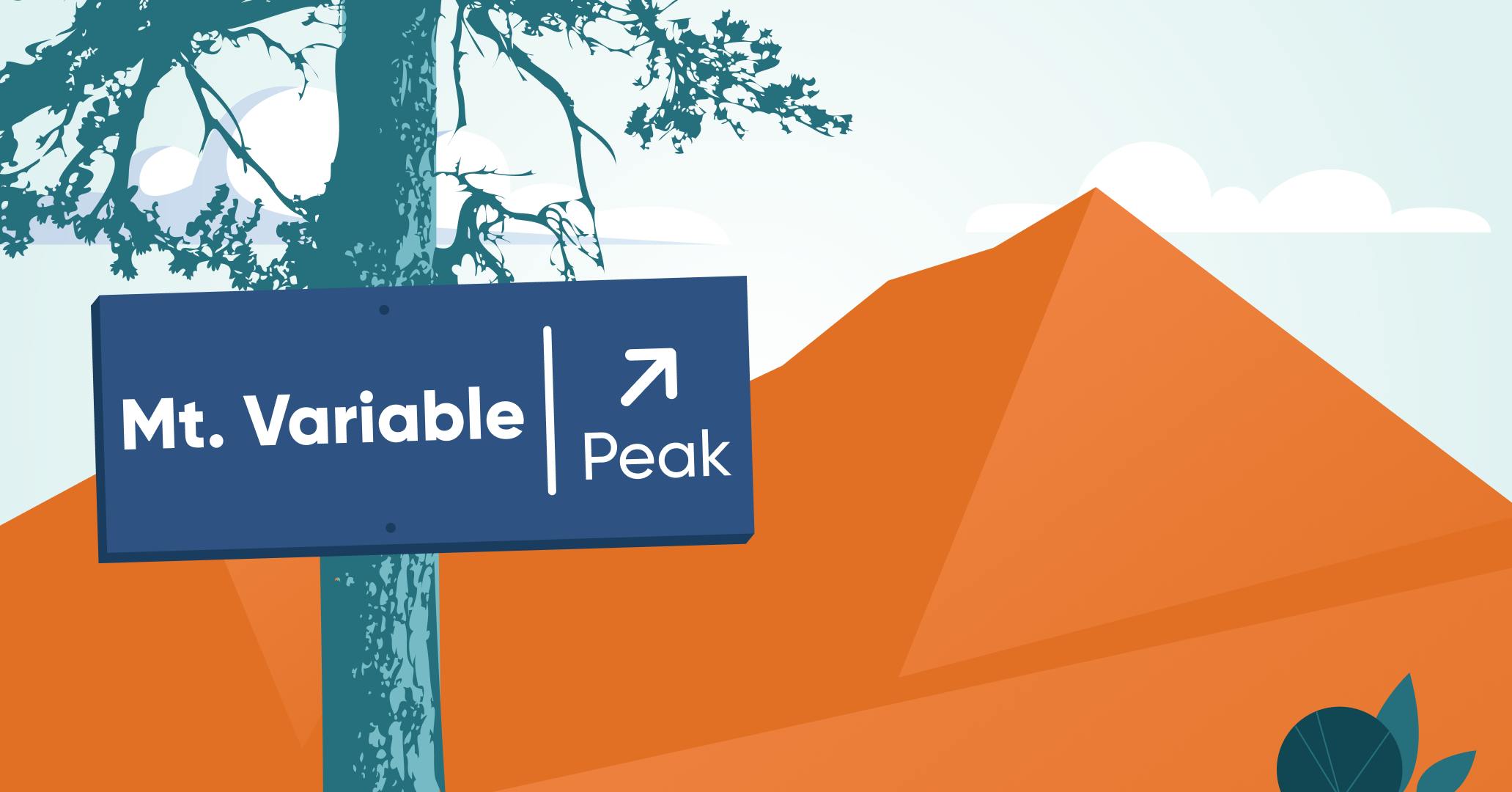Did you know? Variable mortgage rates are affected by the Bank of Canada's overnight benchmark (policy) rate, while fixed mortgage rates are led by bond yields that anticipate where rates may be headed.
Have variable rates peaked?
It may be time to reconsider this rate type.
Mostly shunned during a mountainous rise in policy rates, variable mortgage rates may now warrant a second glance for forward-looking savings.
What goes up usually comes down (we're all counting on it).
A variable-rate mortgage comes with monthly payments that change in response to bank prime rate movements (which change in response to the Bank of Canada's policy rate).
So it's no shocker that a 5-year variable rate, once a credible savings option compared to a (typically) higher 5-year fixed rate, has had decidedly low uptake by our mortgage clients as of late.
Variable rates have arduously climbed the mountain (dragging mortgage holders along behind) to tame high inflation, bushwhacking a trail straight up — the fastest upward trek since the 1990s.
If variable rates have peaked, there may be savings to snag on the way down.
Are variable rates done their climb?
Everyone would love to know the answer to this question. What we do know is that the BoC’s policy rate is the highest since April 2001, and we’re now 18 months on this rate-hike mountain. The foot-tapping is echoing louder as we wait for the all-clear signal to come down.
The fixation on fixed-rate mortgages
In July 2023, after the BoC un-paused its rate pause to deliver two more rate increases, here at True North Mortgage, we saw 84% of our clients choose a fixed-rate mortgage over a variable one — about 25% above average.
That’s in stark contrast to March 2022, when variable rates were at rock bottom at the start of the hikes, and less than 40% of our mortgagees chose fixed rates. The typical uptake for a 5-year fixed rate is around 60%.
The fixed-rate mania seems obvious, with many distrusting the (rate) trail in front of them as the BoC tries to unwind high inflation and consumer spending.
Plus, variable rates (including discounts off the prime rate that lenders like us offer) have often been higher than many fixed-rate options.
So, fixed vs. variable rates have been winning the (mortgage) day as Canadians try to deal with home affordability, tighter budgets from higher prices in general, and predict the rate future simultaneously.
If we’re (finally) at the height of BoC rates, would a variable-rate mortgage offer a faster route to a budget break?
That depends on many factors, such as the fixed term length you’d choose to wait out these higher rates, the rate you’d have to pay to wait it out, and how soon and how far variable rates would come down.
Recently, the attraction to fixed rates has been for terms shorter than the 5-year term. Even though the rate for a 2- or 3-year term has been higher than a 5-year, many want to avoid costly payout penalties to get into a lower rate sooner (fingers crossed) and are willing to live with the higher mortgage payment.
However, if your variable rate offer is the same or lower than a short-term fixed rate, your payments could decrease sooner if rates drop, instead of waiting for the fixed term to end to benefit from lower rates. (Assuming you have an adjusting payment variable rate mortgage instead of a static one with a Big Bank that changes your amortization instead).
The allure and the peril of the variable rate mortgage: its risk for change (and potentially more savings)
Our July numbers of 84% is a high skew for fixed-rate choice, considering how close variable rates may be to the top — and historically, variable rates tend to save homeowners more over the life of their mortgage (hitting peaks and valleys along the way).
In the current market, if your best variable rate offer is higher than a fixed one that fits the bill — you’d be choosing to pay more, plus take on the risk that the rate hikes may continue for longer (weather and rate predictions are two things uncertain in life).
But if rates are coming down in the future and you can handle the payments until then, you may feel you’re siding with savings in taking on a variable-rate term.
Your choice of rate type comes down to how well you sleep at night:
- Knowing that with a fixed rate, your mortgage payments (or amortization) can’t change during your term, you’ll take your chances on what rates will look like at renewal; or,
- Believing that rates will come down eventually, you’d rather take the ‘variable’ chance to benefit from lower payments the moment they do.
Navigating your options to keep your mortgage goals on track amid turbulent market conditions can be difficult.
It’s essential to look at all your options and use a highly trained, friendly True North Mortgage broker to shop around for your best possible rate to save as much as you can.
Sleep on the decision a little longer with the lowest fixed rate in Canada.
True North Mortgage offers the best deal in the land — an ultra-low, 6-month fixed rate product that can help you defer your rate decision and possibly renew into lower rates by then.
It’s only for switches and new home buys (other restrictions may apply), and you can choose any other term or rate type at renewal — we can help you decide if it’s the right fit for your situation.
Get the right guide for your best-rate trek.
Your mortgage payment is a big commitment; higher rates can drive that home.
An expert, salaried True North Mortgage broker can quickly find your best rate and outline your fixed vs. variable rate decision points, guiding you to the most savings with the least stress.
With over 15,000 5-star reviews and counting, we're standing by to help you online, over the phone, by email, or drop by a store near you.
Need help reaching your mortgage savings peak?
A mountain of mortgage info

2025 Mortgage Rate Forecast
Continually updated. Are rates going down or up in 2025? Get insights from CEO Dan Eisner into… Learn More

Bank vs Broker
Bank or True North broker? That's easy, we have your better rates and service.
Learn More
Variable vs Fixed Mortgage Rates
Which rate type works best for you, variable or fixed? Some pros and cons to help you decide.
Learn More
